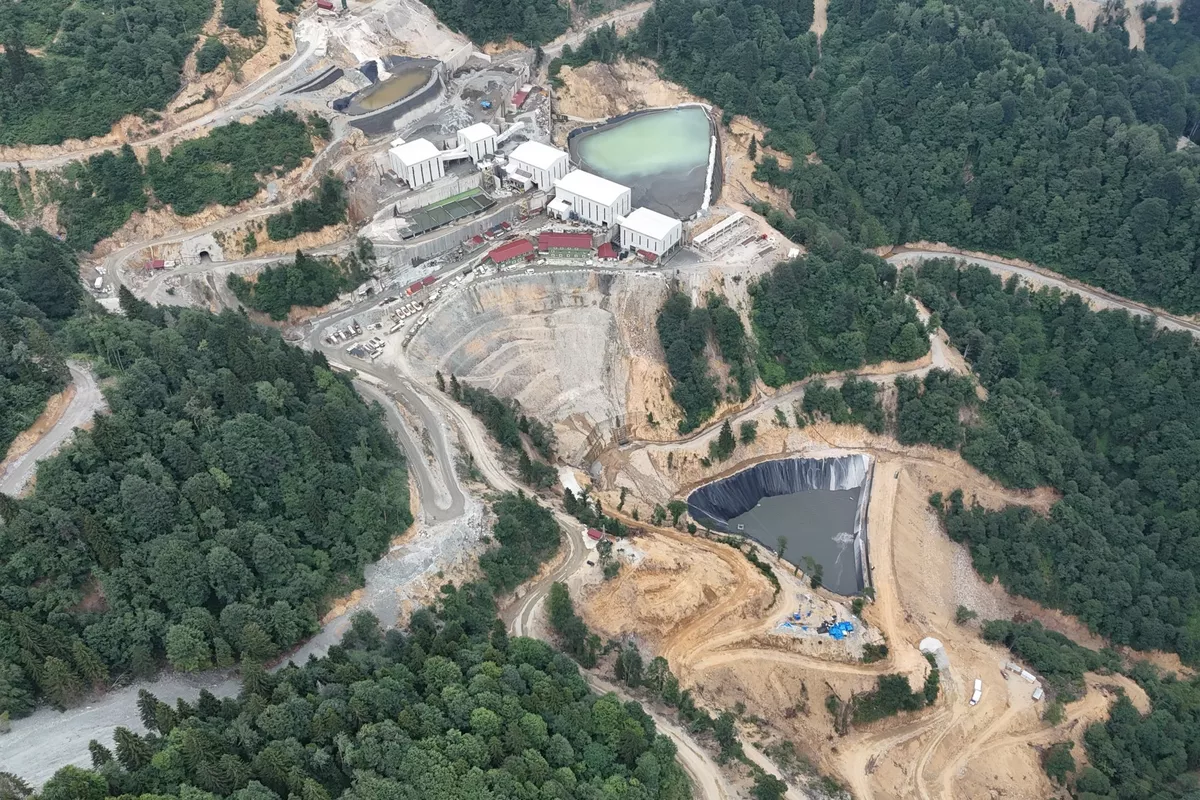
IHA photo
Industry representatives say that the mining sector holds strategic importance for Türkiye and could play a crucial role in reducing the country’s trade deficit, as it has yet to fully tap into its vast underground resources.
Türkiye recorded a foreign trade gap of $49.3 billion (TL 2.02 trillion) in the first half of the year, of which $20.8 billion stemmed from the mining and quarrying industry, according to data from the Turkish Miners Association (TMD), The Caspian Post reports citing Daily Sabah.
"Türkiye's underground potential is worth $3.5 trillion. It is unacceptable to run an annual trade deficit of $50 billion-$60 billion while leaving this potential untapped," TMD President Mehmet Yılmaz said.
Although exploration licenses cover 7.7 million hectares across the country’s 78.3 million-hectare land area, actual operating licenses represent just one-thousandth of that total. On average, only one in every 200 exploration permits becomes an active mine.
Mining activity in forest areas accounts for only 0.1% of Türkiye's total surface area, with rehabilitation and reforestation mandated by law. So far, around 11,325 hectares have been rehabilitated.
Yılmaz says mining should be a "locomotive sector" for Türkiye's economy, citing developed countries such as the United States, Canada, Australia, Russia, China and India, where he says mining has historically played a central role in industrial development.
"Considering our underground potential, activating the mining sector is an inevitable and highly significant reality," he noted.
Gold, boron, marble
Yılmaz underlined Türkiye's global significance in several key resources, including gold, boron and marble.
The country holds 73% of the world’s boron reserves, though value-added production remains limited.
Exporting refined boron products to industries such as glass, fertilizer, batteries and defense could generate an additional $2 billion annually, said Yılmaz.
In marble, he said boosting sales of processed products rather than raw exports could add $1.5 billion in revenue.
"We are the world leader in boron. And we have branded products in the marble sector," he added.
Türkiye's gold reserves are estimated at about 5,000 tons, but could rise toward 10,000 tons with updated surveys, according to Yılmaz.
Critical role in green transition
Yılmaz also pointed to the role of critical minerals in the global energy transition.
"Lithium, graphite and rare earth elements are vital for producing electric vehicles, wind turbines and solar panels. The shift to green energy will require six to nine times more mining. We must mobilize this potential," he said.
He noted that Türkiye has "strategic" reserves of lithium, silver, titanium, iron, manganese, zinc, copper and aluminum, which are resources crucial for defense, renewable energy and high-tech industries.
Emphasizing the rising demand for minerals driven by clean energy technologies, Yılmaz said: "An electric vehicle requires six times more minerals than a conventional car, while an offshore wind turbine uses 13 times more minerals compared to a natural gas power plant."
He added that Türkiye's target of adding 60 gigawatts of renewable energy capacity by 2035 will significantly increase demand for mining inputs.
Yılmaz emphasized that industrial dependence on foreign sources is "unacceptable."
"Positioning mining against the environment and local communities is wrong. Any mining activity that prioritizes people and the environment within a framework of sustainability should be supported," he said.
Addressing debates over mining in olive groves, Yılmaz said activities could proceed if international criteria and safeguards are met. "Olive trees are sacred, but just like industrial plants, housing projects, or highways can cause damage, mining too can be managed in a way that balances national interest," he added.
He also highlighted misconceptions about mining in forest areas, noting that only 0.038% of forest land is used for mining. "Preventing the misuse of such misperceptions is in the nation's best interest," he said.
Share on social media